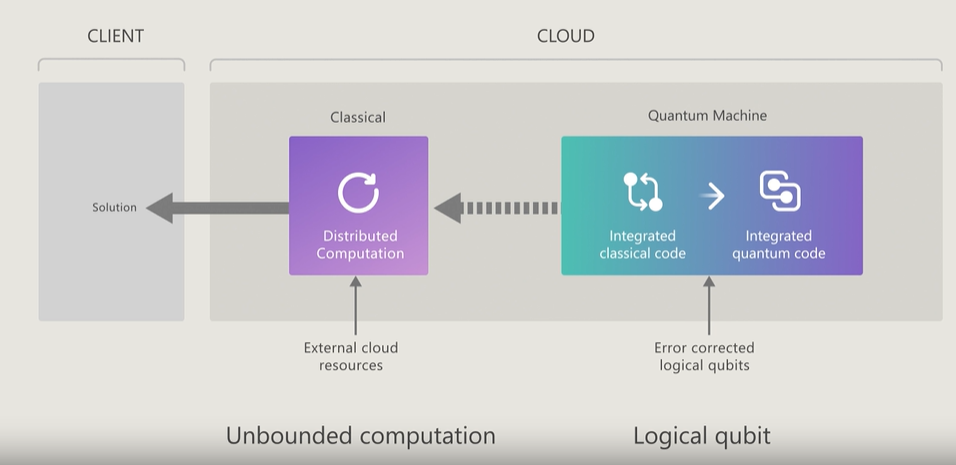Quantum computing vendors are all bullish on hybrid supercomputing approaches that'll play well with the generative AI boom.
This hybrid mantra--with a heavy dose of commercial use cases today--started a year ago and has now become a common theme in the quantum computing industry. A few recent events include:
- IBM launched a series of Qiskit software services to go with its IBM Quantum Heron systems. The aim is to integration classic supercomputers with quantum computers in an architecture that can allocate workloads based on the best platform available.
- IonQ's recent earnings highlighted how its focus on commercial workloads that are enterprise relevant today is paying off nicely. At the SuperCompute24 conference in Atlanta, IonQ will highlight how its systems can integrate into hybrid quantum-classical infrastructure. SuperCompute24's agenda features a variety of quantum computing talks. More: IonQ’s bet on commercial quantum computing working, acquires Quibitekk | IonQ's quantum computing bets: Quantum for LLM training, chemistry and enterprise use cases
- Rigetti Computing CEO Subodh Kulkarni said the company is working with Nvidia at the Israeli Quantum Computing Center to understand how a QPU interfaces with the CPU and GPU. "We are absolutely committed to doing that kind of work to understand how quantum computing fits into the broader datacenter hybrid computing ecosystem," said Kulkarni on Rigetti Computing’s earnings call. "We believe that our 9-qubit Nuvera QPU is ideal for experimentation across a variety of research areas, including qubit characterization and hybrid quantum algorithms." Rigetti Computing quantum systems are collocated with Nvidia Grace Hopper systems. More: Why your quantum computing vendors are going to look familiar
- D-Wave Quantum CEO Alan Baratz said the company is focusing on using quantum computing to train foundational generative AI models. While Baratz didn't address hybrid architecture directly on the company’s earnings call, the door is open.
- Quantinuum's partnership with Microsoft primarily revolves around hybrid architectures.
The catch with these hybrid HPC efforts is that the hardware is dramatically different. The good news, however, is that the software ecosystem around quantum computing is rapidly developing.
In recent research, Constellation Research analyst Holger Mueller noted that quantum networking and hardware advances have been critical. Mueller has argued that the industry would have seen the year of quantum computing if it weren't for the buzz around generative AI. The hardware side of quantum computing is reaching maturity, but software will be what bridges hybrid quantum-classical supercomputers. These quantum-classical supercomputers will likely be consumed as a service through cloud vendors.

He said:
"We are seeing the hardware side of quantum technology reaching stability and maturity through the quarters of 2024—so the focus switches to quantum software development kits (SDKs), the software libraries that map quantum problems to quantum hardware."
For now, CxOs should investigate use cases for quantum computing now and in the future, plan investments and realize how critical the software stack will be, said Mueller.


